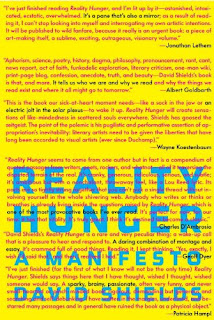CNF is a lot about new angles, new perspectives. Our personal perspectives are always shifting, and they are always unique to us, to our lives. Well. Earlier this week, I reached for my iPad. I was dozing on the couch, and I had lost the iPad somewhere in the folds of the comforter I was wrapped in. When I found it, the screen was face down and the etched text on the back was wrong side up—so completely backwards. It was a great moment to reflect on one of the iPad’s ingenuities—its ability to reorient the screen to suit how you hold it. The back cover of course does not reorient, but upsidedown words can be considered as lines and shapes and not letters. And I noticed, beside the neat symmetry of the ‘P’ and ‘d’, the ‘i’ in iPad is a perfect exclamation point. I can’t claim to know why the teams over at Apple named the iPad iPad, but that first letter is another case of brilliant design. It evokes the inverted exclamation point, and it is inseparable from the word. iPad (notice how even at the beginning of a sentence, it is not IPad) comes with its own excitement, its own fervor, its own life. Just great marketing? What about our need for these devices, are they sparked by the urgency in the name? Is it really so wrong to be excited? The inverted exclamation point is unique to the Spanish language. Its expression seems almost parallel to the English exclamation point, only it comes at the beginning of a sentence. In English punctuation, the exclamation point signals commands, energetic or passionate statements, statements of disbelief, or even statements made in times of duress. All connote motion, the slant forward of iTalics (couldn’t resist), the present. The Now, never the past. The movement toward the pressing future. I find excitement, too, in how that lowercase iPad ‘i’ has come to be synonymous with ‘I’, that power player of CNF. And by extension, the i/I is also kin to the inverted exclamation point; it is a signal forward. The i/I is interesting, compelling, never at rest. Which leads to what every CNF writer must do: exclaim. Declare. Insist on your relevance, your design, how essential you are. Write your i/I into the world, and let it connote urgency, fervor, passion, life.
















